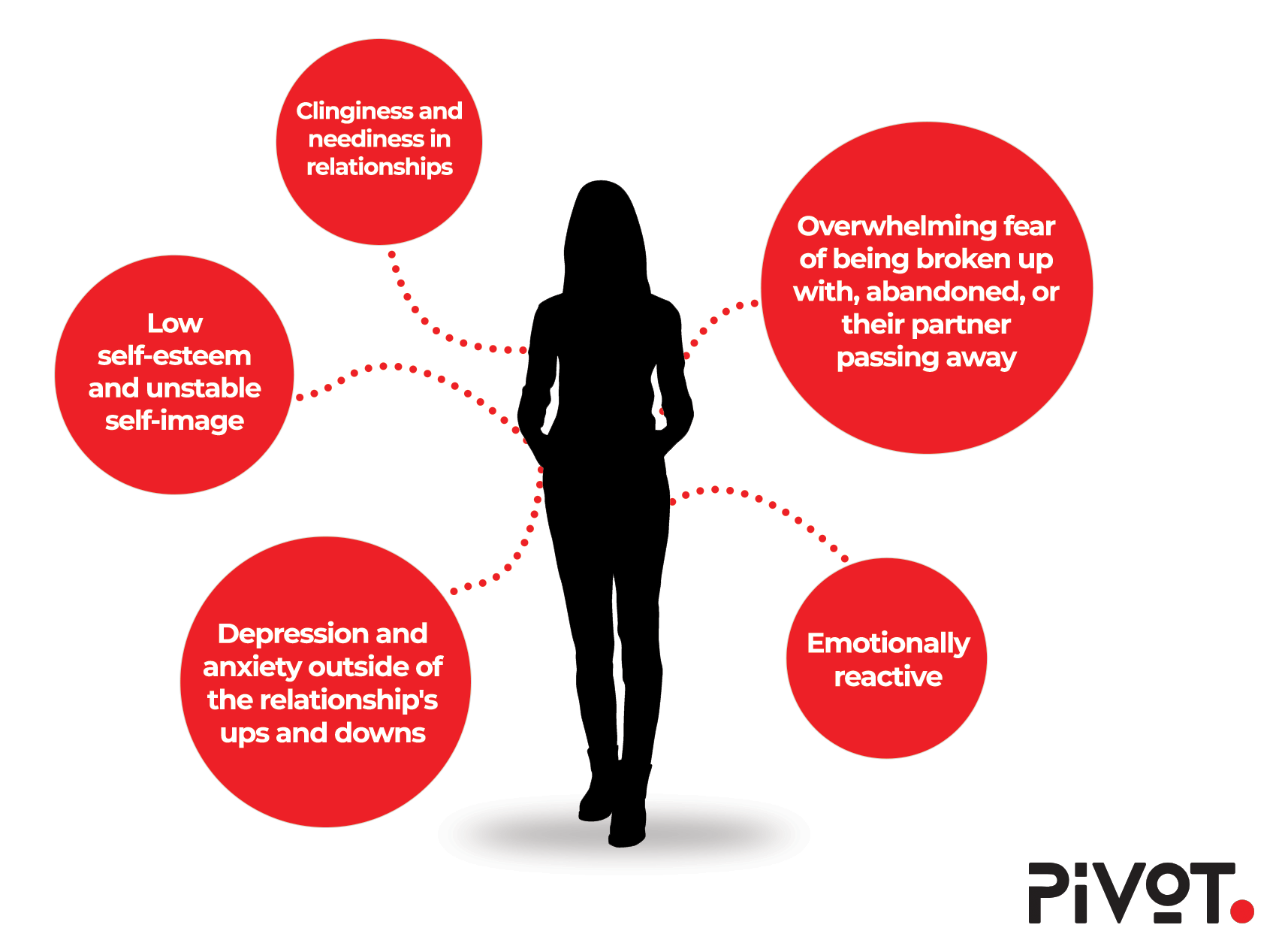Would it surprise you to learn that you have an anxious attachment style in romantic relationships? Or that attachment styles have their origins so early in life that you may not even be aware of them? Understanding your attachment style can be the first step to building more secure attachments in adult relationships.
If you are experiencing insecurity and anxiety in your romantic relationships, you may have an anxious attachment style. Even if that insecurity and need for constant validation significantly impact your life and how you relate to others, you should know that there are ways to change that. So, if you or your partner have an anxious attachment style in relationships, there is hope. A relationship coach can help you find happiness and relational freedom.
The Signs of an Anxious Attachment Style in Relationships

What Causes an Anxious Attachment Style in Relationships?
Attachment refers to our ability to form emotional bonds with others. We develop these attachments shortly after birth and build on them through early life and adulthood. Depending on their circumstances, people can develop one of four different attachment styles: secure, avoidant, disorganized, or anxious. The last three fall under the category of insecure styles.
An insecure attachment style develops when a child’s needs are met inconsistently or incompletely or when trust is betrayed. These factors may also contribute to the development of an anxious attachment style:
- Genetic factors, including a family history of anxiety
- Your parent/caregiver’s attachment style
- Losing a parent as a child
- Childhood abuse (particularly from a parent)
- Lack of support from adults during childhood
Early attachment wounds cause fear, confusion, and hopelessness in children, setting a “working model” for how they view relationships as adults. Kids who experience these childhood traumas may grow into adults who bring an anxious attachment style to their romantic relationships.
In adulthood, those with an anxious attachment style in relationships have trouble dealing with their own emotions and the feelings of their partners. They frequently suffer from a negative self-perception.
People with an anxious attachment style often unknowingly develop survival habits that sabotage their romantic relationships. Unfortunately, the behavior patterns triggered by actual or perceived slights usually push partners further away.
Curious How You are Attaching in a Specific Relationship?
How Does an Anxious Attachment Style Affect Relationships?
Your attachment style can affect how you feel about yourself, how you respond to conflict, and how you behave in a relationship. In addition, one of the hallmark signs of anxious attachment is hyperactivation, the constant search for signs that your partner will leave you.
| Anxious Attachment Style Affects Relationship Stability | |
| Anxious Attachment Creates | Resulting Behaviors |
| Less trust in a relationship |
|
| More conflict in a relationship |
|
| Extreme dependence on the other partner |
|
| Lower satisfaction with the relationship |
|
Can an Anxious Attachment Style in Relationships Be Healed?
It’s essential to recognize that even though you may be experiencing challenges in relationships, it doesn’t mean you’re destined for unhappiness. There’s room for growth, understanding, and cultivating fulfilling and supportive relationships with compassionate self-awareness and effort. In fact, studies have shown that individuals with anxious attachment styles tend to show more appreciation and are often very empathetic and synchronized with their partner’s emotions.
Moreover, your style can also change over time. You may start feeling safer in a relationship with a secure and committed partner with whom you’ve been with for several years. A healthy relationship with mutual respect and clear communication can make the effects of your anxious attachment less invasive, shifting your working model of how relationships function.
Relationship coaches specialize in helping adults heal childhood attachment wounds. If you or your partner shows signs of anxious attachment, a compassionate coach can have a huge impact. They will help you sort out the complexities of an anxious attachment style and provide the tools needed to replace negative behavior patterns with sustainable coping strategies. With help, you can develop a more positive self-image, heal an anxious attachment style, and find a path toward a fulfilling and healthy romantic relationship.
Overcome Your Anxious Attachment Style in Relationships With PIVOT
If you or your partner are struggling with an anxious attachment style in relationships, PIVOT is here to help. We offer individual coaching and transformational attachment style retreats to help you reconnect to your relationships in a healthier way. Whether you are in a relationship or not, reach out to us at 1-855-452-0707. Our expert coaches will help you overcome obstacles related to anxious attachment in relationships and heal from within.